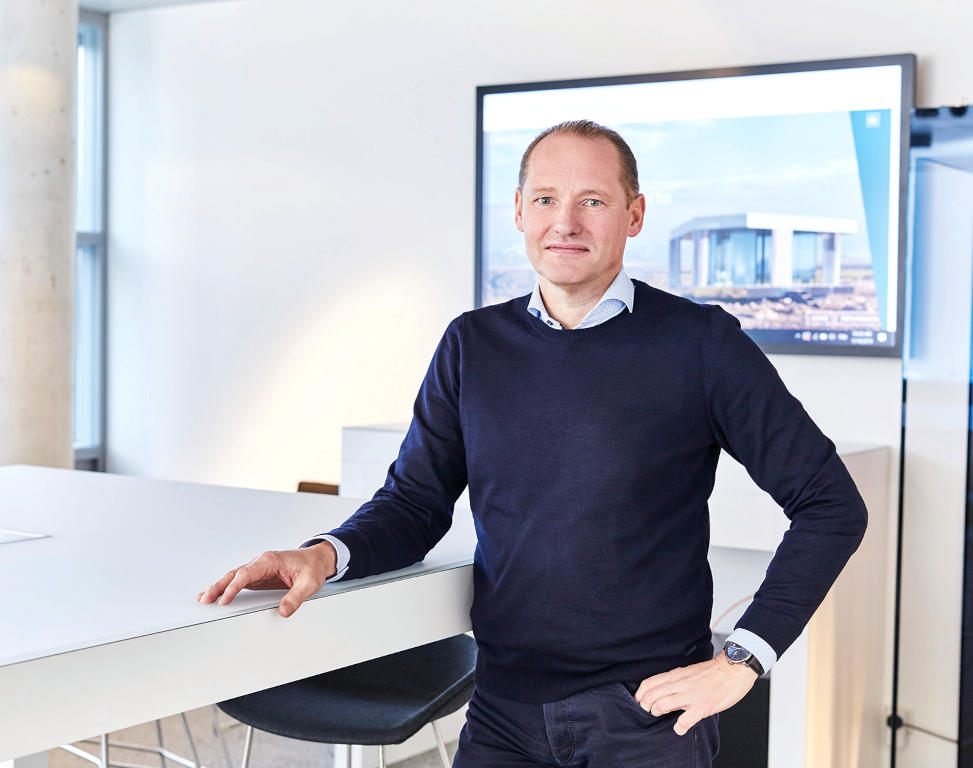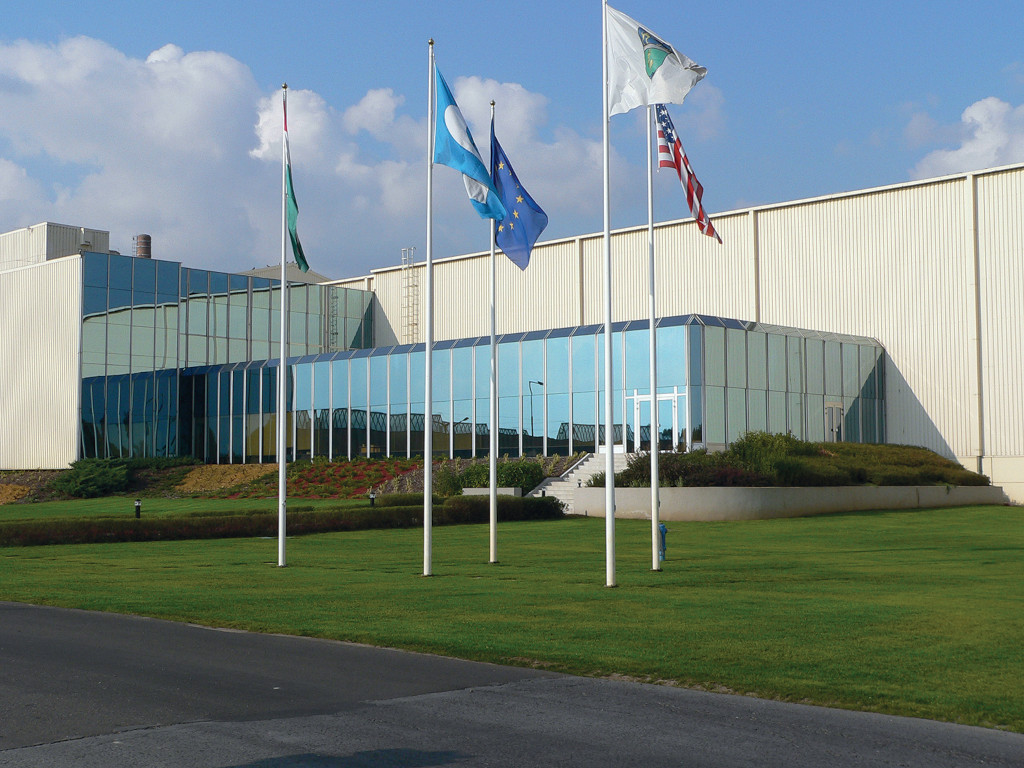At Guardian’s Oroshaza plant in Hungary a range of thick, coloured, acoustic and coated laminated glass is produced in addition to standard laminated products. The factory’s laminated glass production line was the first fully automated line installed within Guardian Glass, ensuring more efficient production of jumbo size products. “In Hungary we had a furnace that we rebuilt, but it was a relatively small furnace and with the current gas prices it was completely uneconomical to burn gas, so we did a temporary cool-down to upgrade that furnace to be able to use an alternative fuel to melt glass there,” says Mr Boekhoudt. “When that is done, and the demand is back, we will start up that furnace again.” Guardian is looking at the second quarter of 2023. “It all depends… I am becoming a little bit more cautious around making predictions!” he admits, unsurprisingly. “Sometimes it is even difficult to plan a month [in advance].” He is confident, however, that “from an asset base point of view, we are very well-positioned; we have a very good portfolio, and we have a very good team – those are really good cornerstones to have as a company.”
UK and beyond
In October 2021 Guardian’s UK plant in Goole, South Yorkshire, underwent a cold tank repair to rebuild the furnace and increase capacity by 20%. “The new furnace has a capacity of 825 tons per day of glass,” confirms Mr Boekhoudt. “We have a good coater there and we also have a laminating line.”
The majority of solar control glass manufactured at Goole is destined for customers in the UK or in Ireland. The facility’s output is “one of the most competitive assets in the UK – I think it’s the biggest, and we have a full suite of products there, so we’re very well-positioned,” he adds.
“Now we’re starting to focus on the recycling of glass. We ran a pilot production last week [mid September] where we were doing 60% recycled glass and we were still making very good quality glass, demonstrating our ability to produce a lower carbon glass. So I feel very good about the developments that we’re doing in the UK.”
Beyond Europe and the British Isles, Guardian is expanding a furnace in the Middle East: “In Saudi Arabia, we are rebuilding the furnace and increasing its capacity.” Other investments plans are focused on facilities in India and Asia Pacific. As Mr Boekhoudt points out though, “Guardian has invested a lot of money back into the business in the last couple of years; now it’s time to start them up and we’re getting ready to serve our customers with the products we have.”
Armed for the future
Guardian’s strategic nurturing of its business assets and customer relations derives from a long-established tradition of innovative thinking and progressive management. Even its logo, a giant capital ‘G’ surrounding a knight on horseback, is a signifier of the security and protection that the company has been providing since the 1930s, when it launched in America as a fabricator of laminated car windscreens, going on to produce millions of square feet of laminated glass for military vehicles during World War Two. Today, that protection extends globally via forward planning, shrewd investment, and safeguarding and consolidating assets, but also in sharing know-how and pioneering constructive partnerships to develop optimal solutions for the company and the glass industry as a whole.
To this end, Guardian Glass is both a member and active participant of Glass Futures, the UK-based industry-backed research and technology organisation currently building a pilot plant in St Helens, UK which will serve as a Centre of Excellence for glass in R&D, innovation and training to help define the future of sustainable glass-making.
“To really drive innovation in glass-making, you cannot do that alone as a glass manufacturer,” stresses Mr Boekhoudt. “What I like about Glass Futures is that it’s a corporation of many, many companies that all have a link into the glass industry. Having that [collective] knowledge … you will gain a lot of benefits. Energy efficiency improvements, carbon reduction or low-carbon glass – all these things are going to be opportunities for the future.”
Is there a balance to be struck between exposing every trade secret and preserving patented technologies?
“There are not a lot of secrets in glass making because the float processes are kind of the same,” he notes wryly. “As an active member we will do our best to protect our intellectual property, but in something like this, where you typically talk about a lot of new ideas, it’s okay in my opinion that you share knowledge. If everybody sits like this” – he mimes crossing his arms and looking obstinate – “we are not going to go any further. Moreover, to get a brand new melting technology off the drawing board and into development, you have to co-operate. What you’re also seeing is that open innovation is something that is continuously growing."
“I think Glass Futures is a fantastic platform to invest in, and that is why we are an active member,” he concludes.
Who knows how much will have changed by glasstec 2024, but taking a cue from Mr Boekhoudt’s considered optimism, it seems safe to assume that Guardian Glass will again be one step ahead and ready to divulge a host of exciting new developments.



